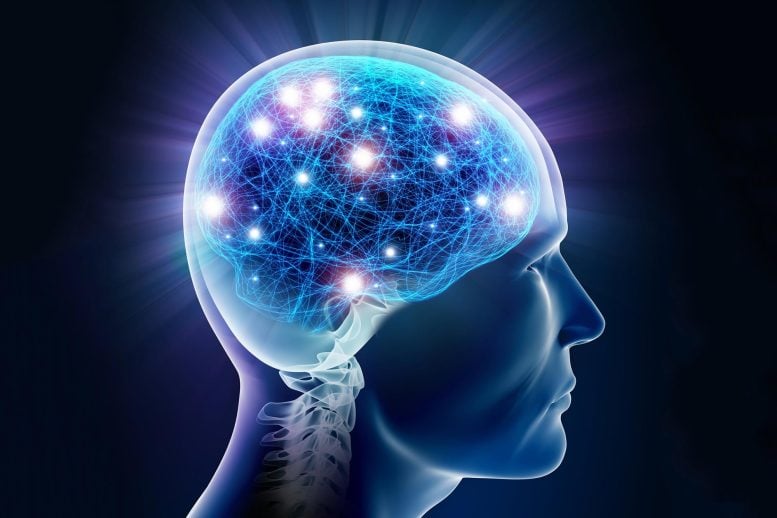
A New Treatment Has Been Shown To Improve Cognitive Function
In order to enhance the cognitive abilities of a small sample of Down syndrome patients, an Inserm team at the Lille Neuroscience & Cognition laboratory (Inserm/Université de Lille, Lille University Hospital) has collaborated with their counterparts at Lausanne University Hospital (CHUV). First, the researchers revealed the dysfunction of the GnRH neurons in an animal model of Down syndrome and its implications for the condition’s cognitive function impairment.
Then, a pilot study using seven patients to investigate GnRH pulsatile injection treatment was carried out. The findings were encouraging: the treatment increased cognitive function and brain connectivity. The findings were recently published in the journal Science.
Down syndrome, also known as trisomy 21, affects around one in every 800 births and causes a range of clinical symptoms, including cognitive impairment. 77% of individuals who have the condition have symptoms that resemble those of Alzheimer’s disease as they become older. It is also normal to have a gradual loss of scent starting in the prepubertal period, with potential sexual maturation deficits occurring in males. This is common in neurodegenerative diseases.
GnRH-Secreting Neuron Dysfunction Identified in Down Syndrome
Recent research has shown that the neurons that release the hormone known as gonadotropin-releasing hormone (GnRH), which is known to regulate reproduction via the hypothalamus, may also operate on other brain areas that may be involved in other functions, such as cognition.
In light of this, the Lille Neuroscience & Cognition laboratory team under the direction of Vincent Prévot, Inserm Research Director, investigated the mechanism regulating GnRH in mouse models of Down syndrome.
The laboratory demonstrated that five strands of microRNA regulating the production of this hormone – which are found on chromosome 21 – are dysfunctional. This supernumerary chromosome then leads to abnormalities in the neurons that secrete GnRH. These findings were confirmed at both genetic and cellular levels. The Inserm scientists were able to demonstrate that the progressive cognitive and olfactory deficiencies seen in the mice were closely linked to dysfunctional GnRH secretion.
Restoring GnRH Production To Restore Cognitive Function
The Inserm scientists were then able to demonstrate that restoring physiological GnRH system function restores cognitive and olfactory functions in trisomic mice.
These findings in mice were discussed with Nelly Pitteloud, professor at the Faculty of Biology and Medicine of the University of Lausanne and head of the Endocrinology, Diabetology, and Metabolism Department at CHUV. Her research focuses on congenital GnRH deficiency, a rare disease which manifests by the absence of spontaneous puberty. These patients are given pulsatile GnRH therapy in order to reproduce the natural pulsatile rhythm of this hormone’s secretion, in order to induce puberty.
The researchers therefore decided to test the efficacy of pulsatile GnRH therapy on cognitive and olfactory deficits in trisomic mice, following a protocol identical to that used in humans. After 15 days, the team was able to demonstrate the restoration of olfactory and cognitive functions in mice.
Pulsatile GnRH therapy improves cognitive function and neural connectivity in a small patient group
The next stage for the scientists and doctors involved a pilot clinical trial in patients to evaluate the effects of this treatment. Seven men with Down syndrome, between 20 and 50 years of age, received one subcutaneous dose of GnRH every two hours for 6 months via a pump placed on the arm. Cognition and olfactory tests as well as MRI exams were performed before and after the treatment.
From the clinical viewpoint, cognitive performance increased in 6 of the 7 patients with better three-dimensional representation, better understanding of instructions, improved reasoning, attention, and episodic memory. However, the treatment had no impact on the ability to smell. These measures to improve cognitive functions were confirmed by brain imaging conducted by the CHUV Department of Clinical Neurosciences, which revealed a significant increase in functional connectivity.
These data suggest that the treatment acts on the brain by strengthening the communication between certain regions of the cortex. “Maintaining the GnRH system appears to play a key role in brain maturation and cognitive functions,” explains Prévot. “In Down syndrome, pulsatile GnRH therapy is looking promising, especially as it is an existing treatment with no significant side effects,” adds Pitteloud.
These promising findings now justify the launch of a larger study – with the inclusion of women – to confirm the efficacy of this treatment in people with Down syndrome, but also for other neurodegenerative conditions such as Alzheimer’s disease.
Reference: “GnRH replacement rescues cognition in Down syndrome” by Maria Manfredi-Lozano, Valerie Leysen, Michela Adamo, Isabel Paiva, Renaud Rovera, Jean-Michel Pignat, Fatima Ezzahra Timzoura, Michael Candlish, Sabiha Eddarkaoui, Samuel A. Malone, Mauro S. B. Silva, Sara Trova, Monica Imbernon, Laurine Decoster, Ludovica Cotellessa, Manuel Tena-Sempere, Marc Claret, Ariane Paoloni-Giacobino, Damien Plassard, Emmanuelle Paccou, Nathalie Vionnet, James Acierno, Aleksandra Maleska Maceski, Antoine Lutti, Frank Pfrieger, S. Rasika, Federico Santoni, Ulrich Boehm, Philippe Ciofi, Luc Buée, Nasser Haddjeri, Anne-Laurence Boutillier, Jens Kuhle, Andrea Messina, Bogdan Draganski, Paolo Giacobini, Nelly Pitteloud and Vincent Prevot, 2 September 2022, Science.
DOI: 10.1126/science.abq4515
Never miss a breakthrough: Join the SciTechDaily newsletter.
1 Comment
My 58 year old son with down Syndrome just came in back of me and smelled my hair after I shampooed it, and he said it smells so good,like grapes. I guess he doesn’t have any problems yet.